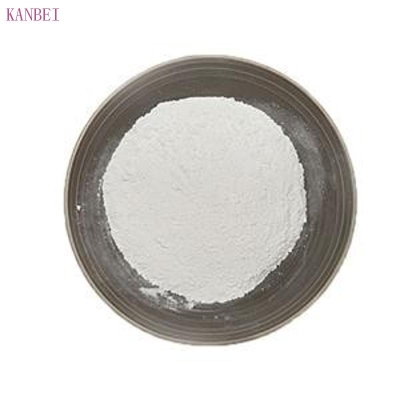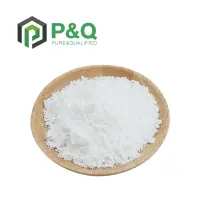Biochemical Engineering
- • Amino Acids and Proteins (221)
- • Nucleic Acid Drugs (18)
- • Enzymes and Coenzymes Drugs (115)
- • Inhibitors (1083)
- • Biological Response Modifiers (15)
- • Fat Medicines (7)
- • Amino Acids and Derivatives (4144)
- • Saccharides (2371)
- • Biochemical Reagents (322)
- • Nucleoside Drugs (346)
- • Condensing Agent (40)
- • Polypeptide (619)
- • Biosynthetic Natural Products (105)
- • Plant Extracts (813)
- • Chinese Herbs (352)
- • Microbiology Reagents (11)
- • Protein Research (34)
- • Lipids (281)
- • Inflammation Mediators (128)
Related News
Sort Inhibitors Alphabetically
Inhibitors
6-Bromoindirubin-3′-oxime
(667463-62-9)-
Industrial Grade / 99%
-
- / 98%
-
![BIO buy BIO]()
Industrial Grade / 99%
-
![BIO buy BIO]()
Request for quotation , get quotes from more suppliers.
6-[[5-Fluoro-2-[(3,4,5-trimethoxyphenyl)amino]-4-pyrimidinyl]amino]-2,2-dimethyl-2H-pyrido[3,2-b]-1,4-oxazin-3(4H)-one
(841290-80-0)-
- / 99.00%
-
AR Grade / 99%
-
industrial Grade / 98%
-
![R-406 buy R-406]()
IndustrialGrade / 99.00%
Request for quotation , get quotes from more suppliers.
6-[[6-(1-Methyl-1H-pyrazol-4-yl)-1,2,4-triazolo[4,3-b]pyridazin-3-yl]thio]quinoline
(1022150-57-7)-
- / 99%
-
![SGX-523 buy SGX-523]()
Industrial Grade / 99%
-
![SGX-523 buy SGX-523]()
-
![SGX-523 buy SGX-523]()
Request for quotation , get quotes from more suppliers.
6-[2-tert-Butyl-5-(6-methyl-pyridin-2-yl)-1H-imidazol-4-yl]-quinoxaline
(356559-20-1)-
- / 99.00%
-
- / 99%
-
![6-[2-tert-Butyl-5-(6-methyl-pyridin-2-yl)-1H-imidazol-4-yl]-quinoxaline buy 6-[2-tert-Butyl-5-(6-methyl-pyridin-2-yl)-1H-imidazol-4-yl]-quinoxaline]()
Industrial Grade / 99.00%
-
![6-(2-(TERT-BUTYL)-5-(6-METHYLPYRIDIN-2-YL)-1H-IMIDAZOL-4-YL)QUINOXALINE buy 6-(2-(TERT-BUTYL)-5-(6-METHYLPYRIDIN-2-YL)-1H-IMIDAZOL-4-YL)QUINOXALINE]()
Request for quotation , get quotes from more suppliers.
6-(4-Methyl-1-piperazinyl)-N-(5-methyl-1H-pyrazol-3-yl)-2-[(1E)-2-phenylethenyl]-4-pyrimidinamine
(934353-76-1)-
- / 99.00%
-
-
![6-(4-Methyl-1-piperazinyl)-N-(5-methyl-1H-pyrazol-3-yl)-2-[(1E)-2-phenylethenyl]-4-pyrimidinamine buy 6-(4-Methyl-1-piperazinyl)-N-(5-methyl-1H-pyrazol-3-yl)-2-[(1E)-2-phenylethenyl]-4-pyrimidinamine]()
Industrial Grade / 99%
-
![ENMD-2076 buy ENMD-2076]()
Request for quotation , get quotes from more suppliers.
Source Inhibitors Products Supply
6-[Difluoro[6-(1-methyl-1H-pyrazol-4-yl)-1,2,4-triazolo[4,3-b]pyridazin-3-yl]methyl]quinoline
(943540-75-8)-
- / 99.00%
-
- / 99%
-
![J&J Ex-61 buy J&J Ex-61]()
Industrial Grade / 99%
-
![JNJ 38877605 buy JNJ 38877605]()
Industrial Grade / 99%
Request for quotation , get quotes from more suppliers.
6-(2,6-Dichlorophenyl)-8-methyl-2-[[3-(methylthio)phenyl]amino]pyrido[2,3-d]pyrimidin-7(8H)-one
(260415-63-2)-
- / 99.00%
-
![PD173955 CAS NO 260415-63-2 buy PD173955 CAS NO 260415-63-2]()
Industrial Grade, Feed Grade, Food Grade, Pharma Grade / 99%
$11.11/KG EXW
-
![PD173955 buy PD173955]()
Industrial Grade / 99%
-
![6-(2,6-dichlorophenyl)-8-methyl-2-(3-methylsulfanylanilino)pyrido[2,3-d]pyrimidin-7-one buy 6-(2,6-dichlorophenyl)-8-methyl-2-(3-methylsulfanylanilino)pyrido[2,3-d]pyrimidin-7-one]()
Request for quotation , get quotes from more suppliers.
6-AMINO-4-(4-PHENOXYPHENYLETHYLAMINO)QUINAZOLINE
(545380-34-5)-
Industrial Grade / 99%
-
-
![6-AMINO-4-(4-PHENOXYPHENYLETHYLAMINO)QUINAZOLINE buy 6-AMINO-4-(4-PHENOXYPHENYLETHYLAMINO)QUINAZOLINE]()
Industrial Grade / 99%
-
![6-AMINO-4-(4-PHENOXYPHENYLETHYLAMINO)QUINAZOLINE buy 6-AMINO-4-(4-PHENOXYPHENYLETHYLAMINO)QUINAZOLINE]()
Request for quotation , get quotes from more suppliers.
6-Pentadecylsalicylic acid
(16611-84-0)-
- / 99.00%
-
Industrial Grade / 99%
-
Pharmacy Grade / 99%
-
- / 97%
Request for quotation , get quotes from more suppliers.
6,8-Bis[(phenylmethyl)thio]octanoic acid
(95809-78-2)-
Chemical Grade / 99%
$3.62-4.12/MT FOB
-
![Octanoic acid, 6,8-bis[(phenylMethyl)thio]- buy Octanoic acid, 6,8-bis[(phenylMethyl)thio]-]()
Industrial Grade / 99%
-
![CPI-613 buy CPI-613]()
-
![Octanoic acid, 6,8-bis[(phenylMethyl)thio]- buy Octanoic acid, 6,8-bis[(phenylMethyl)thio]-]()
Request for quotation , get quotes from more suppliers.











![6-[[5-Fluoro-2-[(3,4,5-trimethoxyphenyl)amino]-4-pyrimidinyl]amino]-2,2-dimethyl-2H-pyrido[3,2-b]-1,4-oxazin-3(4H)-one buy 6-[[5-Fluoro-2-[(3,4,5-trimethoxyphenyl)amino]-4-pyrimidinyl]amino]-2,2-dimethyl-2H-pyrido[3,2-b]-1,4-oxazin-3(4H)-one](https://file.echemi.com/fileManage/upload/canonicalSmiles/20220811/ae520518e29848cea8414edde8a49eb4.png)



![6-[2-tert-Butyl-5-(6-methyl-pyridin-2-yl)-1H-imidazol-4-yl]-quinoxaline buy 6-[2-tert-Butyl-5-(6-methyl-pyridin-2-yl)-1H-imidazol-4-yl]-quinoxaline](https://file.echemi.com/fileManage/upload/cas/441/21748f65-a75f-4f08-9d60-5841eb8ffa49.png)

















![Octanoic acid, 6,8-bis[(phenylMethyl)thio]- buy Octanoic acid, 6,8-bis[(phenylMethyl)thio]-](https://file.echemi.com/fileManage/upload/cas/567/3457cf0f-b767-4985-b562-64ff3ccd9da6.png)

